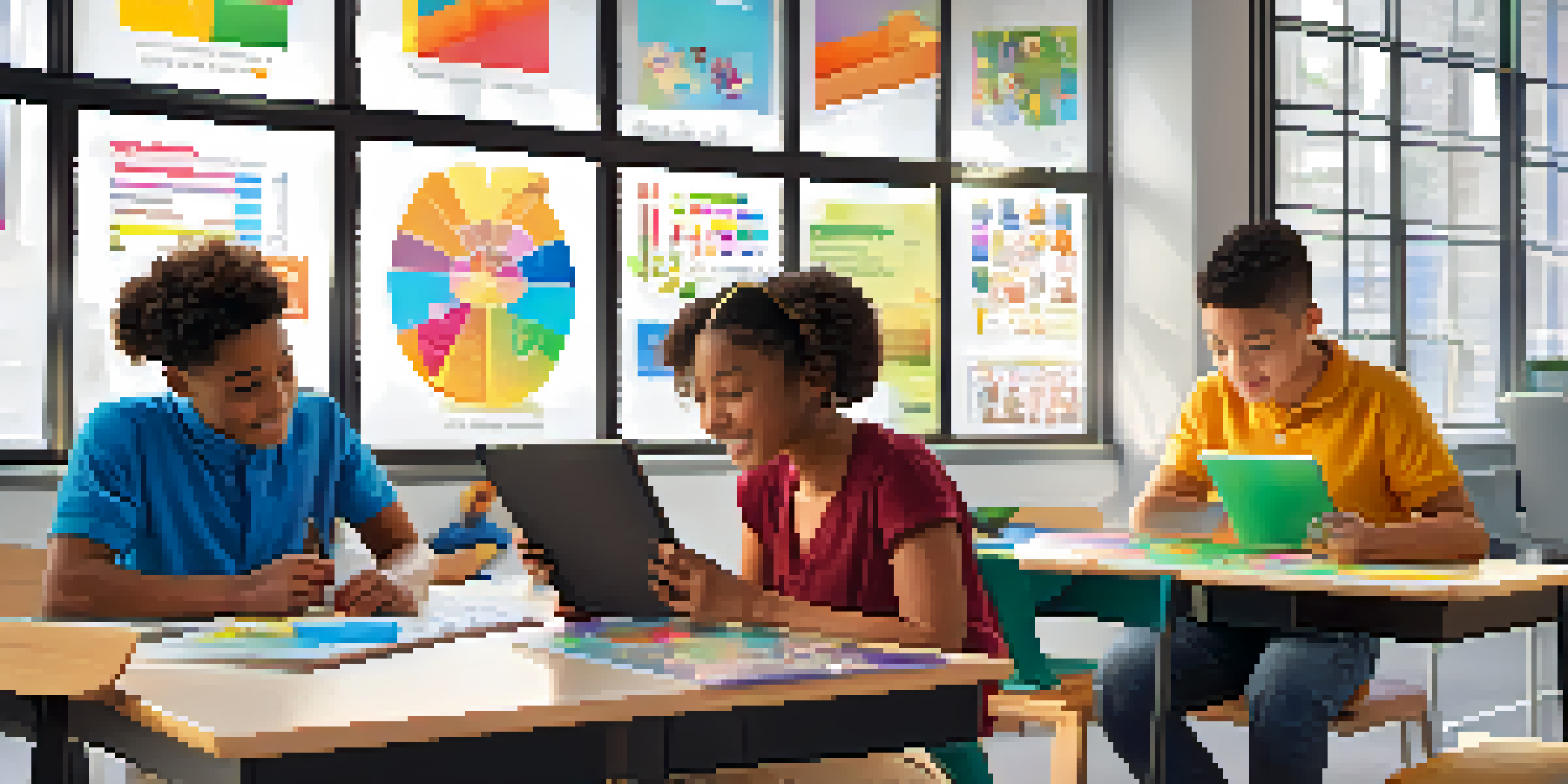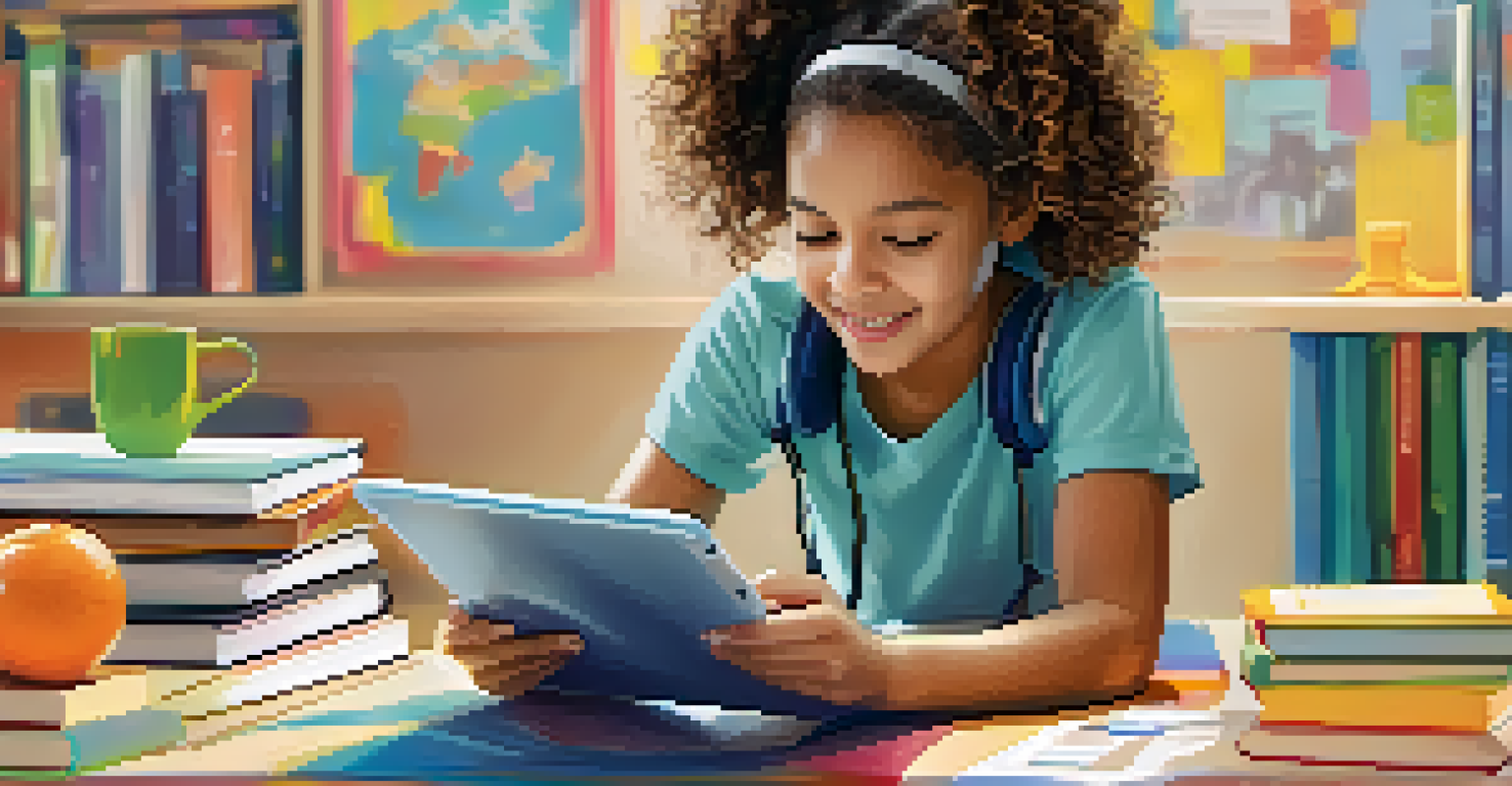Adaptive Learning: A Pathway to Custom Learning Experiences

Understanding Adaptive Learning: A Brief Overview
Adaptive learning is an educational method that tailors learning experiences to individual needs. It leverages technology to adjust the content and pace based on a learner's performance. This approach contrasts with traditional teaching methods, which often treat all students the same, regardless of their unique learning styles.
Personalization is not a trend, it is a requirement for success in education.
Imagine a GPS that recalculates your route based on real-time traffic conditions; adaptive learning works similarly. It assesses a learner’s strengths and weaknesses, providing personalized pathways to help them succeed. By doing so, it creates a dynamic learning environment that encourages growth and retention.
This customization not only enhances engagement but also fosters a sense of ownership in learners. When students see that their education is tailored specifically for them, they are more likely to take an active role in their learning journey.
The Technology Behind Adaptive Learning Systems
At the heart of adaptive learning lies sophisticated technology that collects and analyzes data. This data can include test scores, time spent on tasks, and even interactions during lessons. Algorithms then use this information to modify content delivery, ensuring that learners receive the most relevant material.

Think of it like a smart fitness app that adjusts your workout routine based on your performance and goals. Adaptive learning systems aim to optimize educational outcomes by providing targeted resources and support. This not only maximizes learning efficiency but also minimizes frustration for students.
Adaptive Learning Personalizes Education
Adaptive learning tailors educational experiences to individual needs, enhancing engagement and ownership among students.
Moreover, as technology evolves, so does the potential for adaptive learning. New tools and platforms are continually emerging, making it easier for educators to implement personalized learning experiences effectively.
Benefits of Adaptive Learning for Students
One of the most significant benefits of adaptive learning is its ability to cater to diverse learning styles. For instance, visual learners may benefit from videos and graphics, while auditory learners might prefer podcasts and discussions. By accommodating these differences, adaptive learning promotes a more inclusive educational environment.
The future of education is not about the technology; it’s about the relationships that the technology can help foster.
Additionally, this approach allows students to learn at their own pace, which can reduce anxiety and increase retention. Imagine a student who struggles with a particular concept; instead of feeling rushed in a traditional classroom, they can take the time they need to grasp the material fully.
Ultimately, the personalized nature of adaptive learning can lead to higher engagement and motivation. When students feel supported and understood, they are more likely to take ownership of their learning, resulting in better academic outcomes.
Challenges in Implementing Adaptive Learning
Despite its advantages, implementing adaptive learning can come with challenges. One significant hurdle is ensuring that educators are adequately trained to use the technology effectively. Without proper training, even the best adaptive learning system can fall short of its potential.
Moreover, there can be concerns about data privacy and security. As adaptive learning relies heavily on data collection, it’s crucial to address these issues proactively to build trust among students and parents.
Technology Drives Adaptive Learning
Sophisticated algorithms analyze data to adjust content delivery, optimizing learning efficiency and reducing student frustration.
Lastly, not all educational institutions have the resources to invest in adaptive learning technologies. Bridging this gap is essential to ensure that all students can benefit from personalized learning experiences.
Real-World Examples of Adaptive Learning
Several institutions have successfully integrated adaptive learning into their curricula. For instance, Carnegie Mellon University developed an adaptive tutoring system called 'Cognitive Tutor,' which personalizes mathematics instruction based on student performance. This approach has shown impressive results in improving student understanding and achievement.
Similarly, platforms like Khan Academy offer personalized learning pathways, allowing students to progress through subjects at their own pace. By providing immediate feedback and tailored resources, these systems empower learners to take charge of their education.
These examples illustrate that adaptive learning is not just a theoretical concept; it’s actively transforming classrooms and online learning environments around the world.
The Future of Adaptive Learning
As we look to the future, the potential for adaptive learning is vast. With advancements in artificial intelligence and machine learning, these systems will become even more sophisticated. They will likely provide deeper insights into student behavior and learning patterns, allowing for even more personalized experiences.
Furthermore, as remote and hybrid learning environments become more common, adaptive learning will play a crucial role in ensuring that all students receive the support they need. This adaptability can help bridge the gap between in-person and online education, creating a seamless learning experience.
Challenges in Adaptive Learning
Implementing adaptive learning poses challenges such as the need for educator training and concerns about data privacy.
Ultimately, the future of education lies in personalized learning experiences, and adaptive learning is at the forefront of this evolution.
Conclusion: Embracing Adaptive Learning
In conclusion, adaptive learning represents a significant shift in how we approach education. By recognizing the unique needs of each learner, we can create more effective and engaging educational experiences. This approach not only benefits students but also empowers educators to provide targeted support.
As technology continues to evolve, embracing adaptive learning will be essential for educational institutions. The ability to personalize learning experiences can lead to improved outcomes, greater student satisfaction, and a more inclusive environment.

In a world where one size no longer fits all, adaptive learning offers a promising pathway toward achieving educational success for every learner.